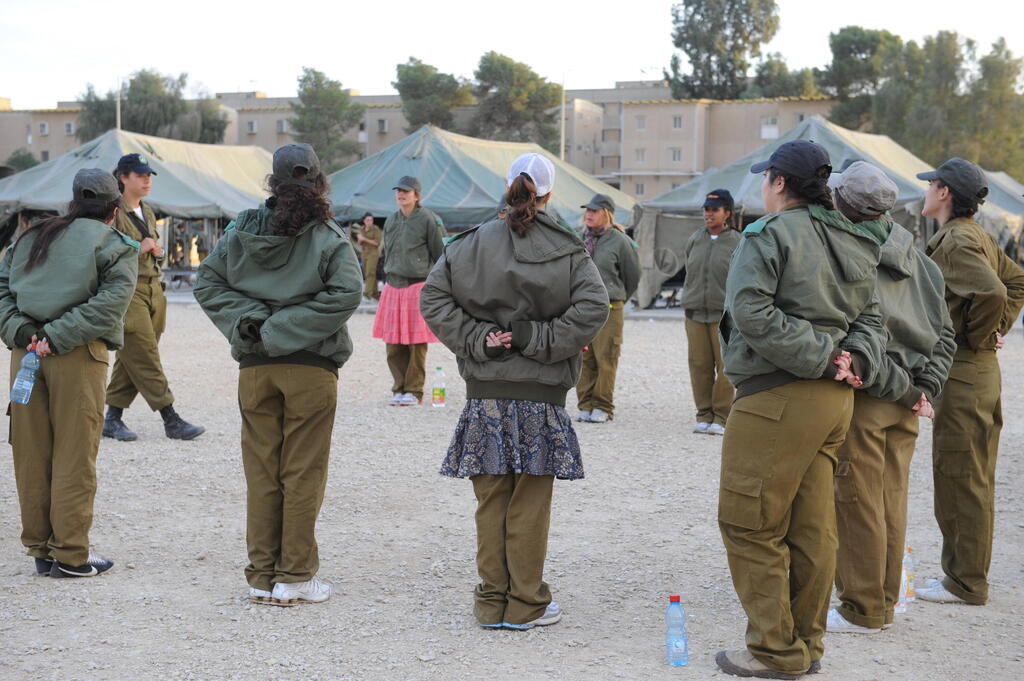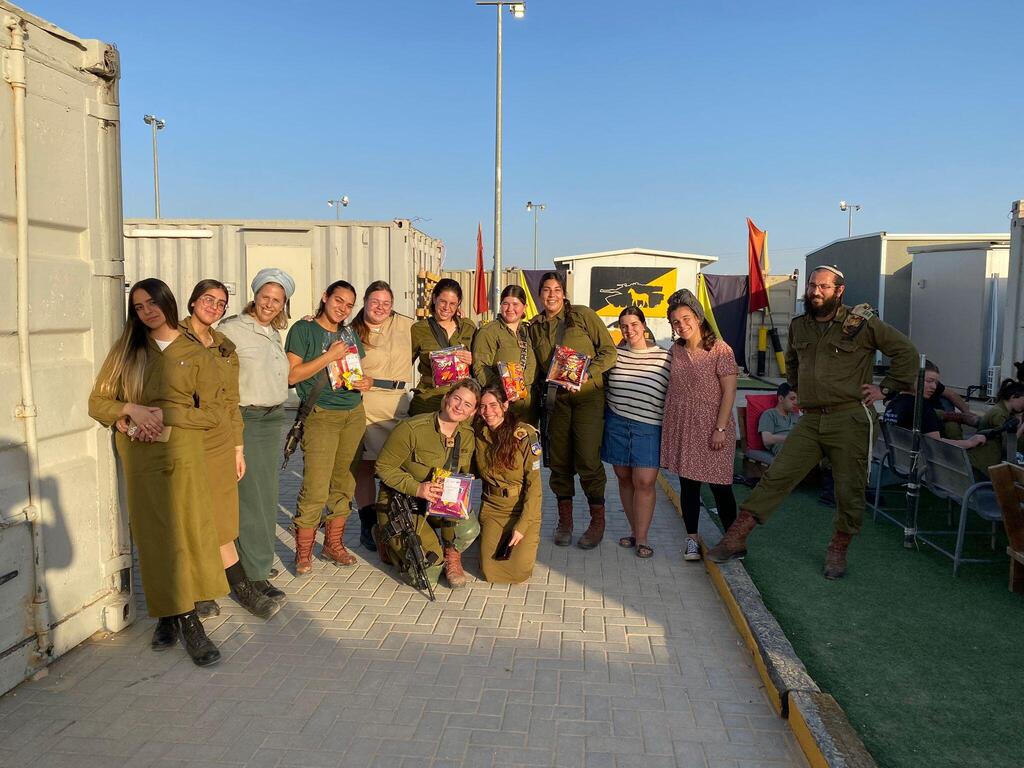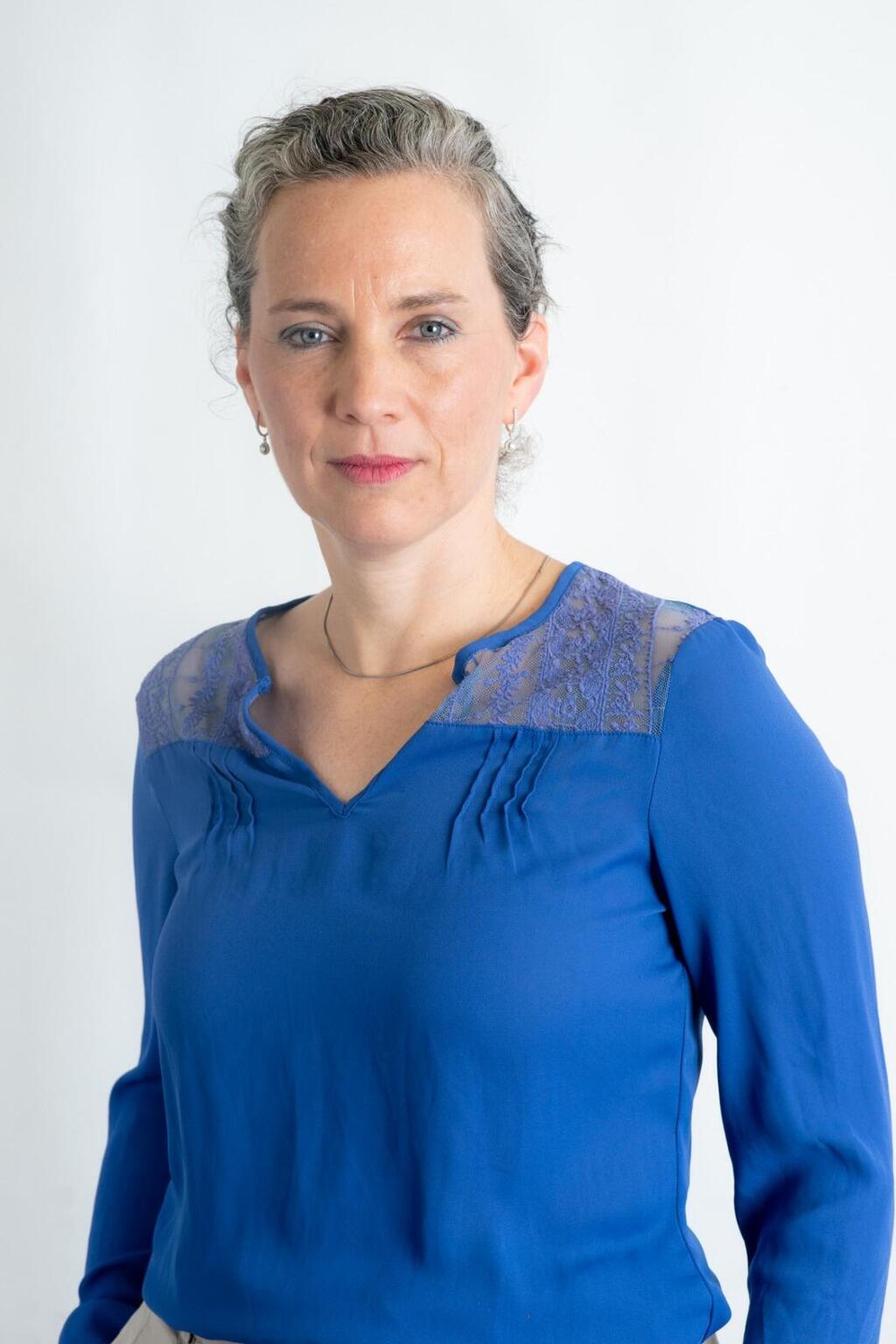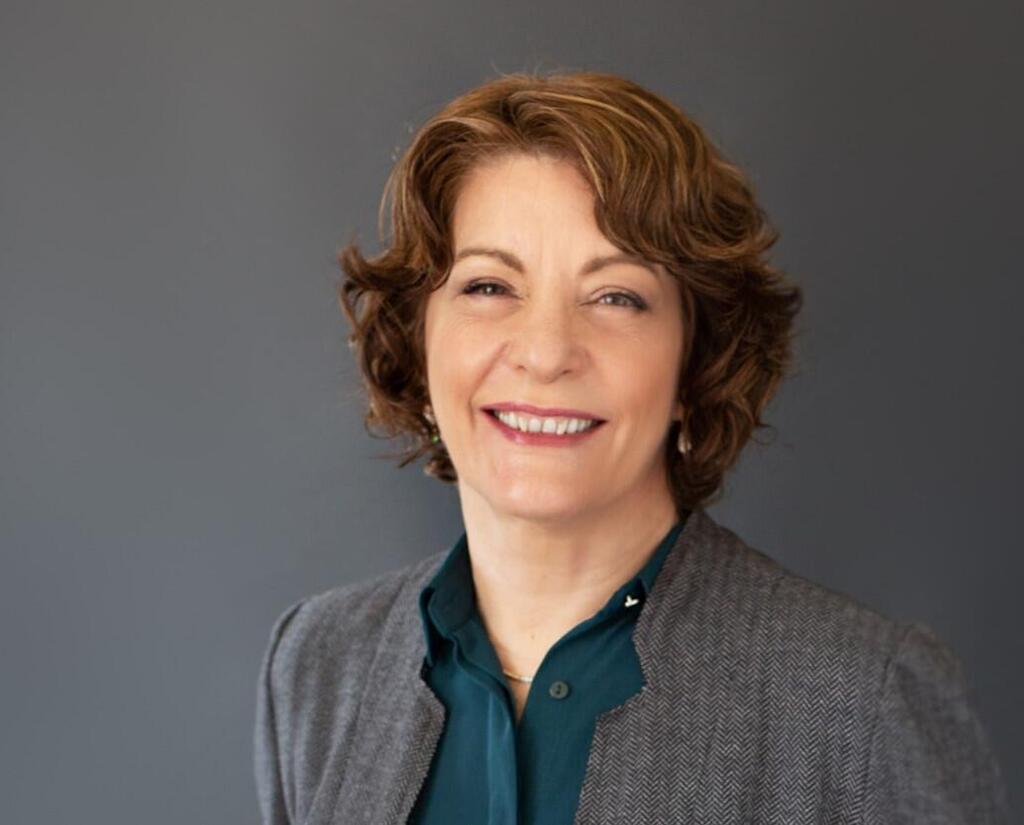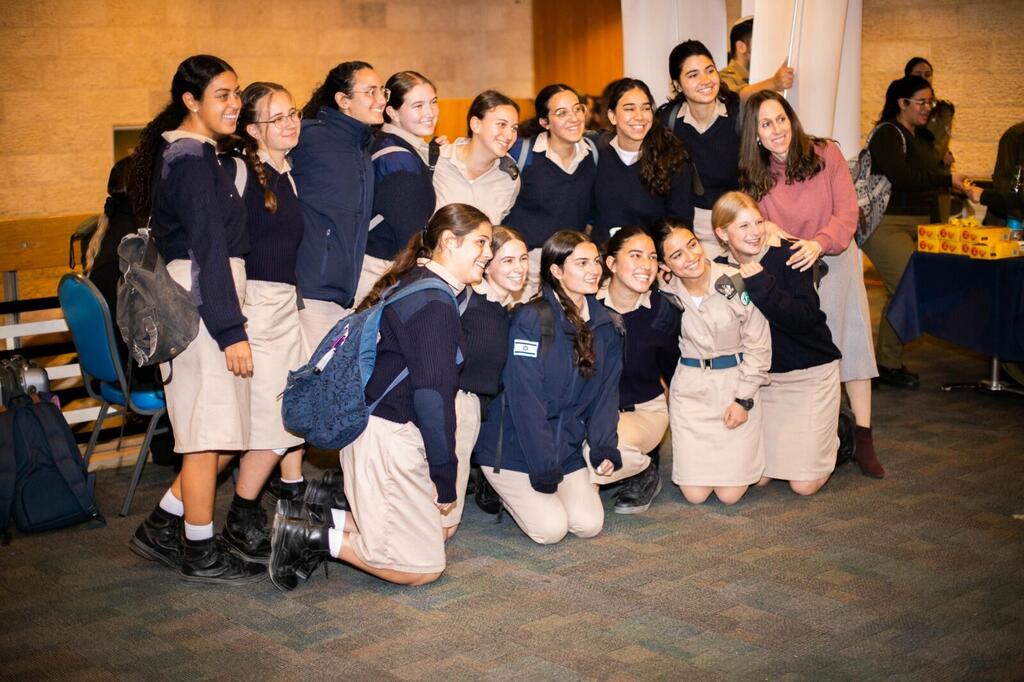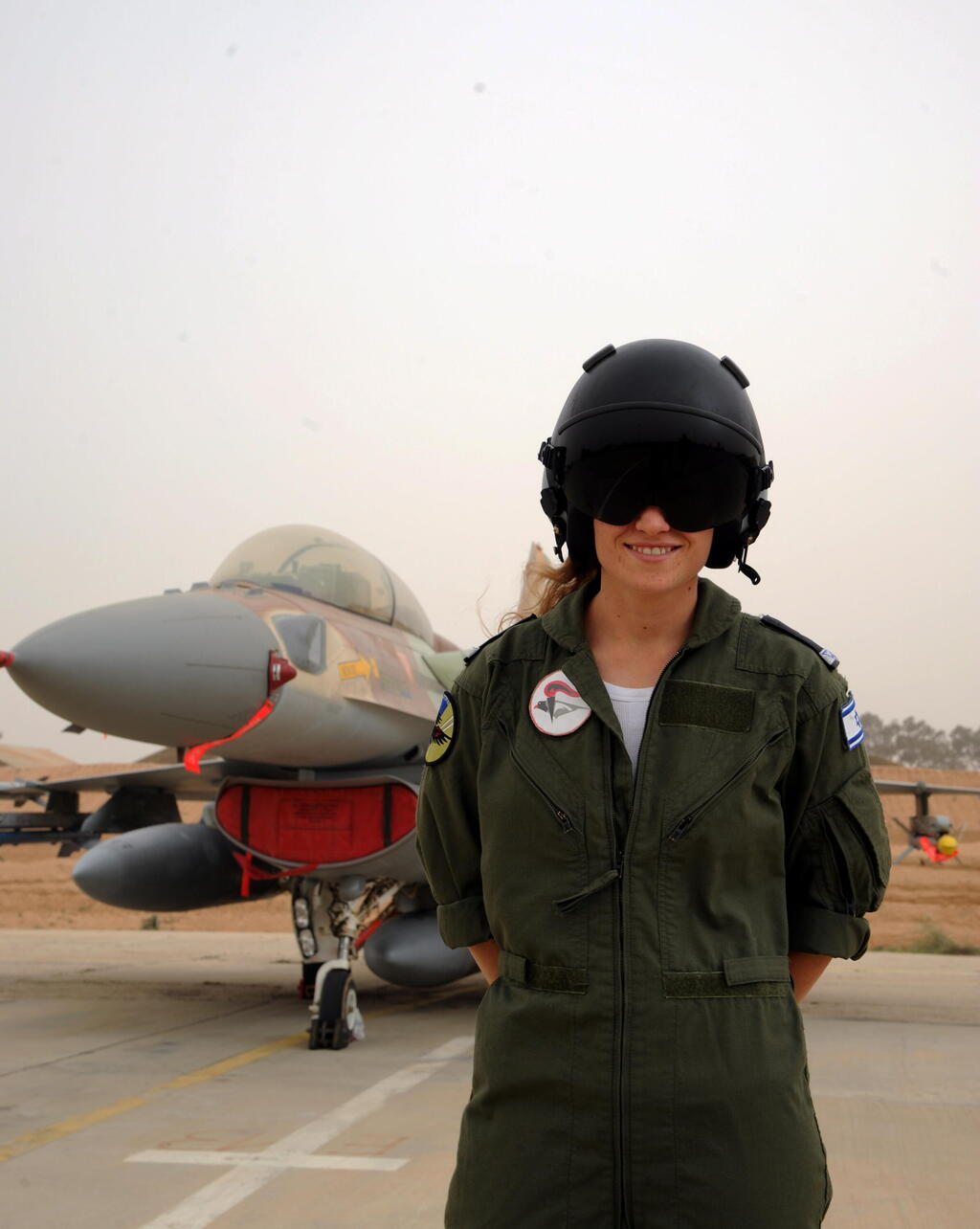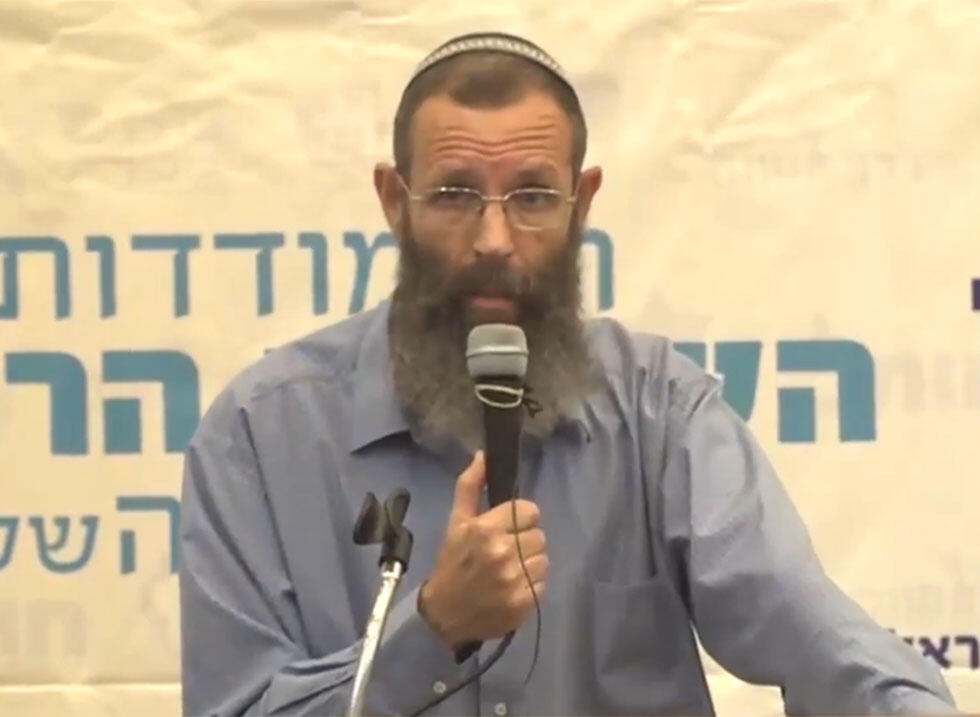Getting your Trinity Audio player ready...
According to IDF data, there has been a moderate yet relatively consistent increase in the number of religious women serving in the army over the years.
More stories:
The military defines a religious female soldier as a graduate of the religious state education system. In 2013, approximately 1,755 religious women enlisted in the army, while in 2021, the number reached around 2,682.
The data also reveals that about 20% of all religious female soldiers opt for combat roles, while 56% serve in what the army defines as "quality positions" that require special screening and training. Behind this data lie the recruitment rates for various positions in intelligence units and many other fields.
However, religious young women who enlist in the IDF are still considered a minority, and the majority of girls from the religious Zionist community still choose national service over military service.
The decision not to pursue national service but to enlist in the army is not trivial. Besides the inherent exemption that religious young women receive once they declare their religious affiliation, the religious community does not necessarily support or encourage this choice, as evidenced by the lack of basic preparation for military service.
"Religious boys are educated for military service, even meaningful service, but girls are still directed toward national service in most places, certainly in ulpanot (religious Jewish school for girls)," says a representative of the unit integrating religious girls in the IDF. "We don't deal with that, and our role begins when the soldier enters the base gates."
"The religious soldier can be identified by the kippah on their head, and people know how to treat them accordingly. Some of the religious female soldiers do not necessarily wear skirts, and they may be transparent. They do not really know that the female soldier is religious, with all the implications that come with it"
Assistance for female soldiers is provided through the Treatment and Support for Religious Female Soldiers department (known by its Hebrew acronym Tipuach), operating within the framework of the IDF Rabbinate. The initiative was established in 2008 and came from the field: religious female soldiers realized that there was no entity addressing their unique status and all that it entails.
Almost invisible
“Religious female soldiers are a unique population, relatively small in many places. Often, this is a transparent population. The religious soldier can be identified by the kippah on their head, and people know how to treat them accordingly. Some of the religious female soldiers do not necessarily wear skirts, and they may be transparent. They do not really know that the female soldier is religious, with all the implications that come with it,” said the representative.
“Unlike other male and female soldiers, the military service of religious girls is actually a voluntary service. This means that religious girls are actively required to waive their exemption for religious reasons and the option to go to national service.
They have the element of choice. Their background is culturally different, and there are also religious aspects that add to the challenges faced by every other male and female soldier during their service. Their backpack is a bit heavier.
In many religious girls' schools that don't encourage their students to join the IDF, the policy today is at least to closely acquaint girls with the options. Their representatives do this through direct and indirect meetings with those responsible for integration on behalf of the army, understanding that some of the girls will go there anyway.
Those who help religious girls after finishing their studies are civilian bodies like Aluma, which accompany the girls before their entry into the IDF - understanding that military service is not as accessible to religious girls as to religious boys.
Aluma Executive Director Dr. Tammy Halamish Eisenmann notes that "the continuous trend we see in the recruitment of religious girls to the IDF has happened thanks to the great efforts of the army, which has set a goal for itself to integrate more religious girls and worked accordingly."
“The army has amended regulations and rules that will allow religious girls to serve while maintaining their way of life. For example, a female soldier is not stationed alone on a base, but is always with another female soldier. In addition, a special track for religious girls was established as a listening ear beginning with the first draft notice and ending with military service itself. In practice, there is an address to turn to for religious matters, and commanders receive training on how to treat religious girls who are serving.”
Religious feminism and integration in key roles
According to Prof. Orna Sasson-Levy from the Department of Sociology and Anthropology and the Program for Gender Studies at Bar-Ilan University, serving as religious girls represent going against the mainstream.
"Many of them decide to serve quite independently with their families. These are decisions that from the outset express individualism and autonomy. To do what my parents and I believe needs to be done," she analyzes.
"It is always with the support of the family, but not always with the support of the rabbis and staff at school. They are enlisting despite the prohibition, not in resistance or insult, but truly out of a desire to be equal. To challenge themselves, to achieve the feeling of belonging and significance that religious men have in the army."
Prof. Sasson-Levy believes that the choice to serve in the military arises from two prior social processes that are interconnected. "The first process is religious feminism, which I believe has been the strongest feminist body in the country for about 20 years. This is not a movement that has one defined topic, but rather a wide-ranging influence in many places, in religious girls' schools and synagogues where women study Torah.
Religious ceremonies are done differently, written differently, and spoken differently, and synagogues have a slightly different structure or need to take into account the considerations of religious women. This is a movement that has a very broad influence, and I think these young women, even if they do not study in a recognized feminist religious high school, they feel it in the air."
"The second process concerns the religious-national world's aspiration to integrate into the military in combat roles, and this is also a process that has many characteristics. Yeshivot Hesder have existed for many years, but the religious pre-military preparatory programs came later on. Their entire goal is to allow boys to have religious reinforcement and from there to integrate into all places in the army, not like in yeshivot, where the boys have to serve in specific places only.
The goal is to bring the spirit of tradition and religion to the entire army and not go through processes of secularization, which was a great fear for many years."
A justified fear, is it not?
"Yes, the fear is justified, so the idea is to strengthen them religiously before enlistment. Of course, with the idea that religious men will serve everywhere and not just in the Military Rabbinate or in specific places in the army. It is a process that began 20-30 years ago. This has led to the fact that today, part of the IDF's General Staff is made up of religious men and entire units are based on religious officers."
Bad rap for national service
As a country where the army is a central and driving ethos, Israel highlights the perception that "the entrance ticket to citizenship" passes through military service - a motive that now looms larger in the discussion of the new conscription law and the struggle against it.
"It's a feeling of pride and belonging, coping with challenges, and breaking out of the bubble. Everything they see in men, they also want for themselves. So the process of national service, which was once self-evident, is no longer self-evident - and they are asking questions about it"
According to Prof. Sasson-Levy, military service allows individuals "to feel belonging and significance. It allows them to obtain an entrance ticket to Israeli society. This testifies to the successful effort of religious Zionism to be a part of the general society, and not to be its margins as they were until the 1970s."
"So what do young women see? They see that religious men obtain personal and political power as well as meaning through the army," she explains.
"They won't define it in those words, but they will define it as a 'contribution' - a contribution to the state, to society, to security. But I think it's a feeling of pride and belonging, coping with challenges, and breaking out of the bubble.
Everything they see in men, they also want for themselves. So the process of national service, which was once self-evident, is no longer self-evident - and they are asking questions about it."
Sasson-Levy believes that one of the reasons for the sharp increase in religious enlistment is a certain decline in the attractiveness of the traditional alternative - national service. "In recent years, national service has not gained a good reputation. I have heard this from students at Bar-Ilan as well. Often, during their service, they are isolated in various remote communities," she says.
In the past, there have been reports of shortcomings in providing for the needs of female national service participants, who sometimes have to cope with a lack of food and other supplies at their service apartments. Sasson-Levy also mentions situations where national service volunteers face sexual harassment.
"There is a lack of supervision, a lot of sexual harassment, and less value given to this service. Therefore, choosing enlistment is also a response to this."
Providing answers
According to the representative of the IDF integration unit, one of the significant factors that positively influence the quality of military service and the integration of religious women in the army is studying for a year in a seminary or pre-army preparatory program before enlistment.
"It's not detached religious study, but rather something connected to the service," she emphasizes. "We feel that these are girls who come to highly meaningful positions and perform significant service."
"I and my soldiers actively approach everyone, establish connections, and check in. We are constantly thinking about what can help. For example, we consider if there are units where we can assign a group of religious girls together, which we've seen to be very helpful, so they don't feel socially isolated. It's something very significant based on our experience."
The unit organizes conferences exclusively for religious female soldiers, but various units also hold combined conferences for religious male and female soldiers, mostly in the unit's synagogue.
"We try to create tailored content, so that every soldier feels comfortable. These are days of Torah study. Beyond that, there's the social aspect. Meeting many religious girls who are serving suddenly is something that helps and provides support."
"Sometimes there are cases where it is necessary to make a phone call on Shabbat, and the rabbi will also pick up"
"The support provided to religious servicewomen is broad and diverse. It can involve technical matters, for example, how to order a skirt. It's a process that also goes through me to ensure it goes smoothly. But there are also more substantial questions."
Halachic questions too?
"I am not a rabbi, I serve as an intermediary between the female soldier and the Military Rabbinate personnel in the unit. Sometimes a soldier serving in an operational role encounters a dilemma.
Recently, I received a message from a soldier who serves in a specific corps but was not in the usual location where she serves, and she had a halachic (Jewish law) question regarding her role during the Sabbath. In such a situation, I simply refer her to the unit's rabbi who is familiar with the subject. I also direct her to the open line of the Military Rabbinate, which is available around the clock for halachic questions that arise for female and male soldiers."
Although I assume that it's a bit more challenging to reach the hotline on Shabbat.
"It depends. Sometimes there are cases where it is necessary to make a phone call on Shabbat, and the rabbi will also pick up. But the main support is emotional. The gaps are social gaps. It's the different world she encounters which is foreign to her."
Cultural shock in an integrated environment
Prof. Sasson-Levy points out that this tension has accompanied the service of religious girls for years. "My daughter served at a base in the south about 18 years ago, and on Saturdays, they would order pizza from the nearby town. The religious female soldier serving with them had to decide what to do: to eat pizza that was paid for on the Sabbath, delivered on the Sabbath, or to isolate herself. Does she make her religious observance a public matter, a source of pride, maybe even an education for others, or does she keep it modest and integrate?
The tension surrounding the Sabbath still persists in the experience of religious female soldiers. "It's not always a matter of Jewish law," says the representative of the integration unit.
"Not at all. Sometimes it's an emotional matter. For example, if I'm now a surveillance observer and I'm required to monitor cameras, it's a matter of life and death, and of course, it's allowed – but there's a gap between intellectual understanding and emotion, the heart, and it's still difficult to put it into practice.
In this situation, they often turn to us. It's a dilemma we constantly grapple with, both for those who chose to be combat soldiers and for those serving at an open base but observing the Sabbath. It's a daily challenge of an integrated society – both religious and secular, and both boys and girls; it's a kind of challenge."
These gaps fit well with the cultural conflict described by Sasson-Levy: "A doctoral student told me that on the fifth day of her religious daughter's training, someone said, 'Girls, birth control pill roll call – whoever takes them, don't forget,' and she was shocked.
There, they are exposed to what they call 'sexual liberation' in contrast to a previous reality where sexuality was not expressed at all, and education was about concealing sexuality with modest clothing. Suddenly, everything is on the table. Very young men and women with raging hormones, without adults, without parents, and without supervision – and they have to make decisions every day about how to deal with it."
Religious female pilots?
Sasson-Levy, who directed Sara Friedel-Inbar's thesis that examined the military service experience from a temporal perspective and its impact on religious women, notes that "one of the things that impressed me the most in the findings is that the female soldiers are left in a situation where they have to make decisions on their own.
The argument was that in the end, they become more autonomous – some of them decide to be stricter in religious observance, and some become more lenient. But that is already their autonomous decision, and that's what's beautiful about it."
The researcher argues that even the choice of service areas reflects this narrative: "You can find them in intelligence and combat roles. They are not clerks. Religious female soldiers serve in very interesting and meaningful positions."
Most of the soldiers already have older sisters, cousins, and even aunts and mothers serving. According to Sasson-Levy, there are also role models that one can admire.
"The story of Tamar Ariel (the first religious female combat navigator in the Air Force), for example, was tragic and difficult, but she also became a symbol for these young girls and for the religious public."
In your opinion, how does the trend of religious women serving in the military affect Israeli society as a whole?
"I think it has a greater impact on the women themselves. It is still a small phenomenon that many people are not exposed to. There have always been religious female soldiers from the religious kibbutz, and when there is an increase, there is an increase in visibility.
Suddenly, at ceremonies, you see female soldiers wearing long skirts. The dramatic effect is on the religious community, where all the anger from Rabbi Yigal Levinstein and others against women serving in combat roles is growing because of religious women.
When he shouts, 'Who will marry her in the end?' or 'They're driving our girls crazy,' he is speaking in general terms but referring to religious girls. He genuinely cares about religious girls, and here we need to ask what he is concerned about."
So, what is he concerned about?
"He is concerned about the disruption of gender roles. He is worried that they will become more autonomous, that they will consult less with rabbis on every matter, and that they will be less obedient.
All the children of my religious acquaintances got married by the age of 22 while serving in the military, and he is worried that this will no longer be the case.
That the girls will not marry so early and will not rush to start a family, and that they will seek equal partners who meet their standards and not settle. He fears that this family structure will be disrupted if women serve in the army, and I think he is correct."
First published: 18:42, 06.16.23


